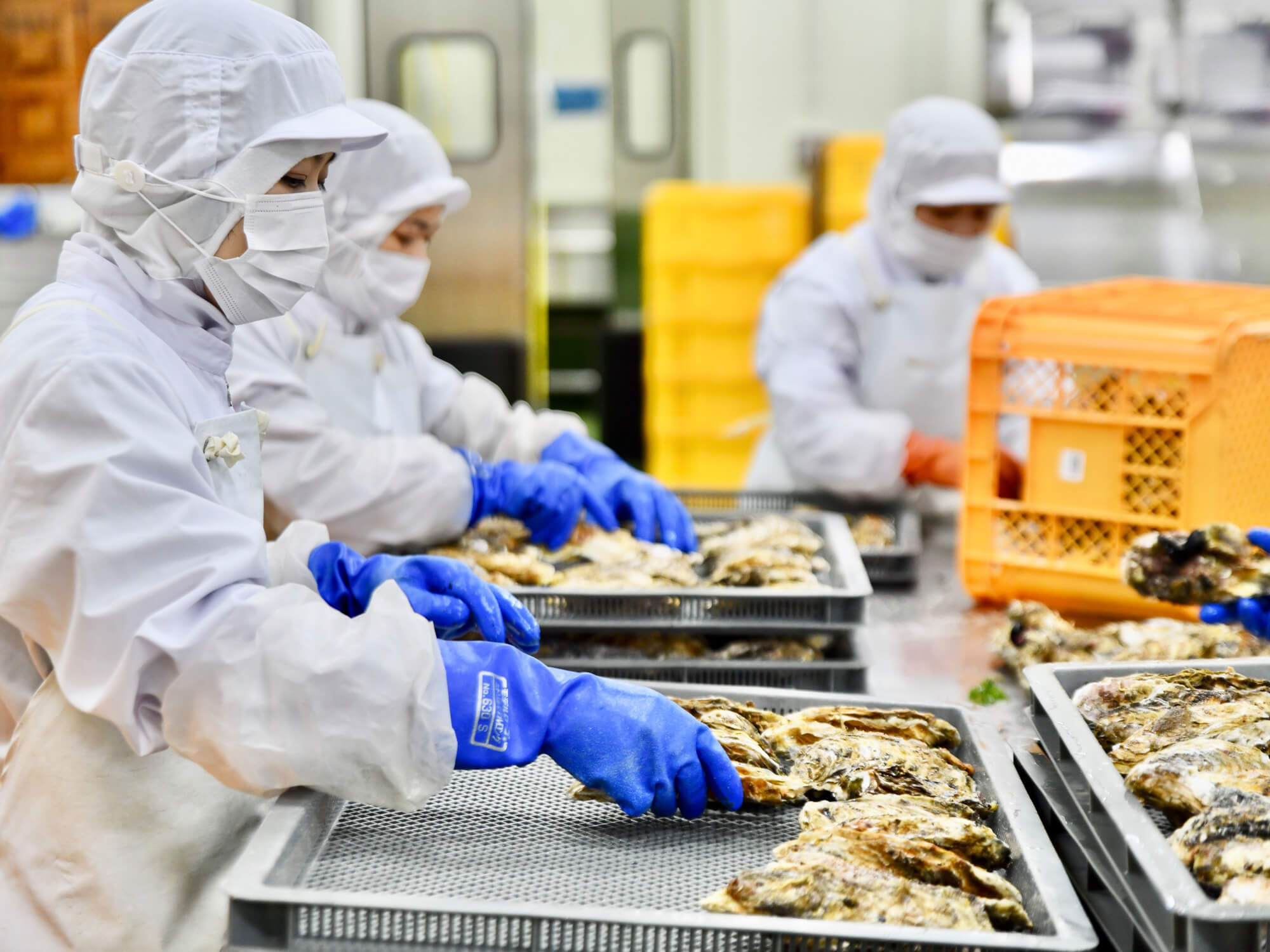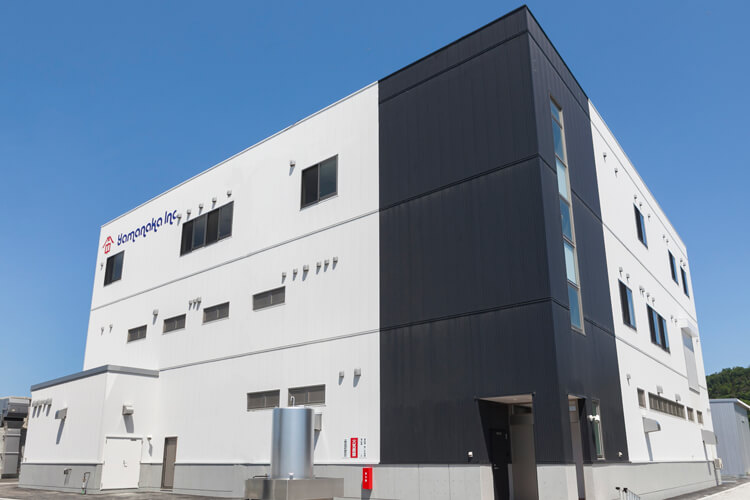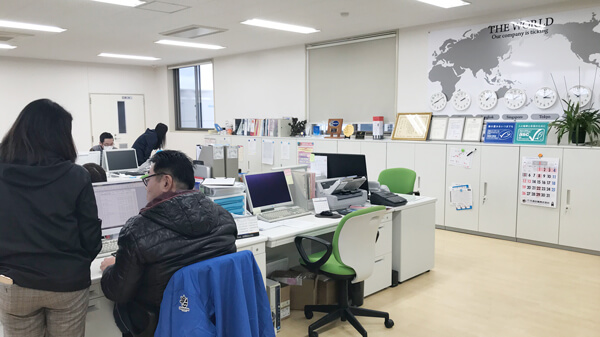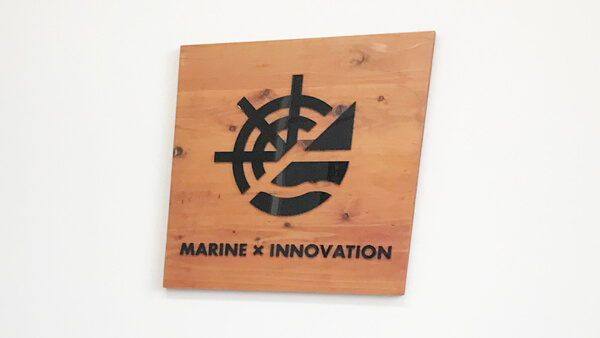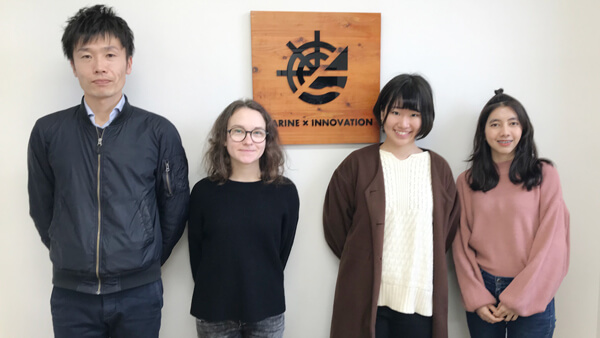About Us
Step to the next level: MARINE × INNOVATION
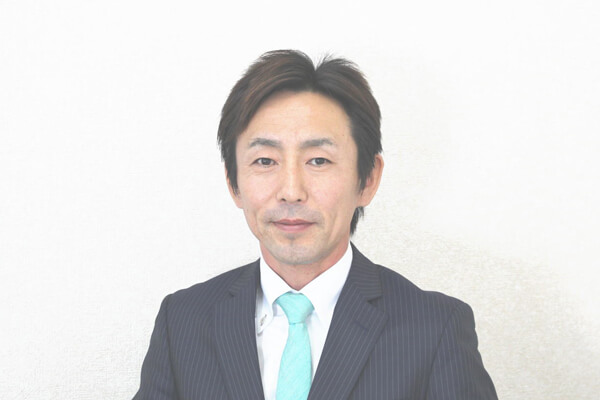
TAKADA Shinji, Representative Director
Yamanaka’s headquarters is located in Ishinomaki, the southern part of Sanriku sea area. Sanriku is famous as one of Japan’s three best fishing spots. Sanriku’s coastal area is the point where the cold Oyashio current and warm Kuroshio currents meet, so many nutrient-dense minerals can be found there which make shellfishes very delicious. In this place, Yamanaka Inc. catches fish and other seafood which looks and tastes great. Nowadays, due to many external factors such as climate changes followed by warming seawater, their catch and production are decreasing. They started trying to create a more sustainable distribution and production system along with the company’s strong vision of “MARINE × INNOVATION”
Vision
Introducing Ishinomaki’s local food to the world
Yamanaka Inc. is the company that has a strong desire to turn Tohoku region including Miyagi prefecture’s local seafood products into world-renowned marine products. The company is very proud to possess the famous HACCP (Hazard Analysis and Critical Control Points) certificate which proves that the company’s products correspond to an international standard defining the requirements for effective control of food safety. At the present time, the company is mainly exporting their products to countries of South Asia (Myanmar, Thailand, Vietnam), but recently they also started to expand their market by selling their delicacy called Scallop to the United States of America. The company also plans to export their products to Middle Eastern countries, since seafood like oysters is rapidly gaining popularity there.
Image of Ideal Candidates
Internationalizing the company
Kenya Chiba, Business Planning Office: “Our company’s mission is to introduce local seafood products to a global market and in order to do that we want to employ more international workers. Right now, we have 6 technical interns from Thailand that we have recruited through the HR company, but we hope to employ more foreigners in the future. Speaking English is crucial for introducing our company on the international level, so we’re looking for international students who are fluent in English. Besides that, we also encourage our Japanese workers to improve their language skills, because we think that the knowledge of foreign languages is the key to successful market expansion.”
Messages
Yamanaka’s strong points
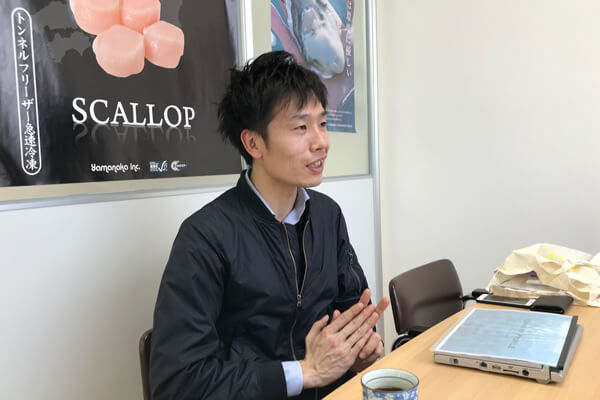
CHIBA Kenya, Business Planning Office
Kenya Chiba, Business Planning Office: “Yamanaka’s products are famous for originating in the rich waters of Miyagi where the cold Oyashio and warm Kuroshio currents meet the rocky ria coast, the area which is known for its bountiful minerals and clean waters. To explain it more precisely, Sanriku’s waters have a rich supply of nutrition and plankton, as well as plentiful fortifying minerals from the mountainous coastline. These conditions contribute to the uniqueness of Sanriku’s oysters’ flavor. To summarize, the company’s strength is in selling products grown in this pristine environment. Yamanaka Inc. is dedicated to sustainable and safe aquaculture industry.”
International students would like to know
Cultural differences between Japanese and international employees
Currently, the company has 6 Thai technical interns on the production line. From what we have heard during the interview, the company encountered some obstacles caused by cultural differences between Japanese and Thai people. Thai technical interns prefer to work in groups more than individual and are also more flexible when it comes to time punctuality. They don’t take their job as seriously as Japanese people. This is the reason why they are sometimes late arriving at their workplace. Moreover, even though Thai technical interns in the company have a high level of proficiency in Japanese, there is still a language barrier leading to misunderstandings in some situations.
How big were the damages after the 2011 Tohoku earthquake and tsunami?
2011 Tohoku earthquake and tsunami really caused some serious damages to our business. We couldn’t sell our products for 3 months after that disaster, so there was a very noticeable decline in sales that year. Some parts of the factory were partially damaged, and it took 2 years in total for the company to recover financially. Luckily, thanks to our devoted employees, we were able to restore our company to its previous state.

